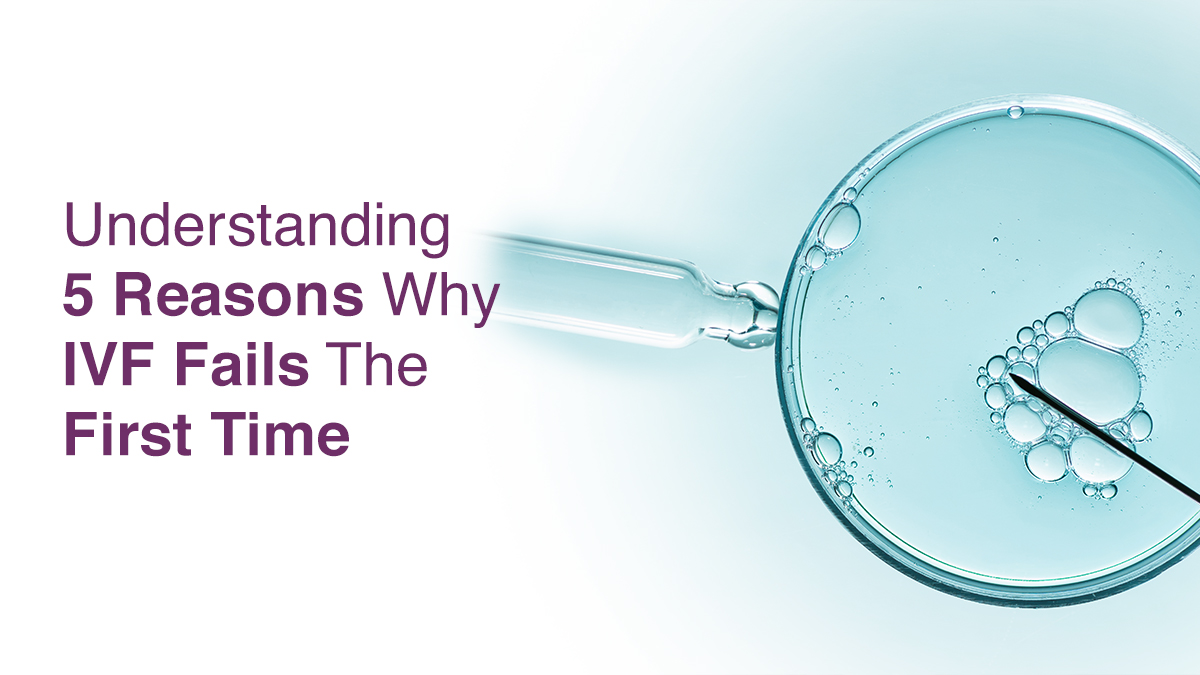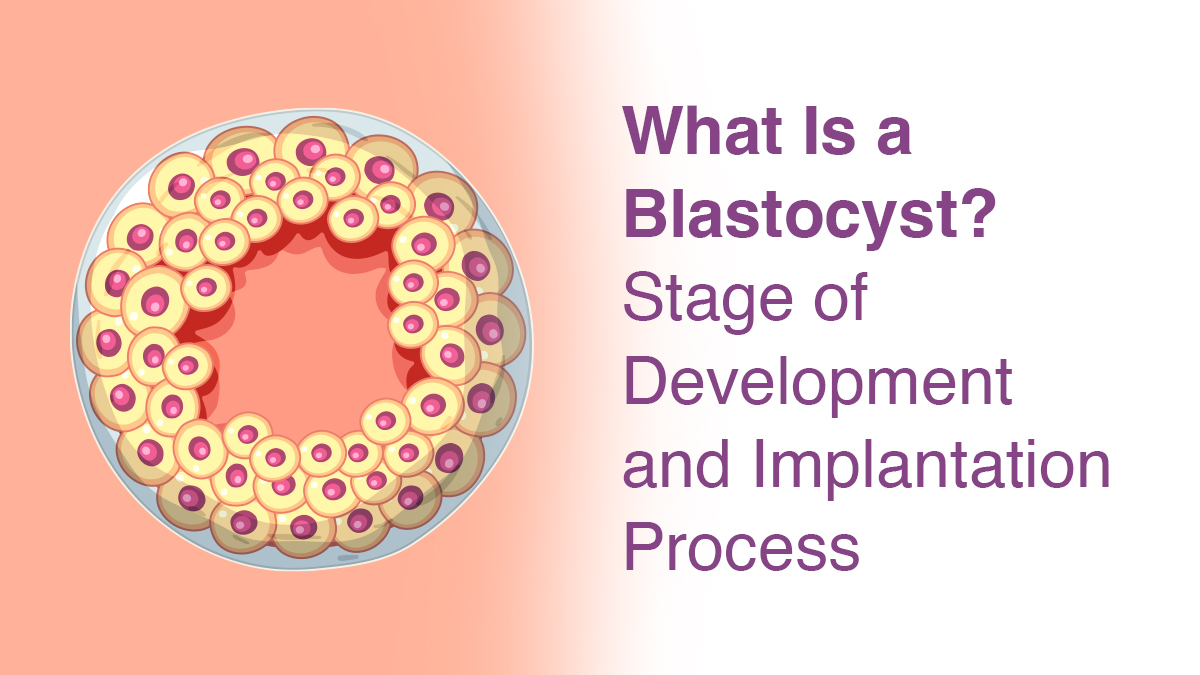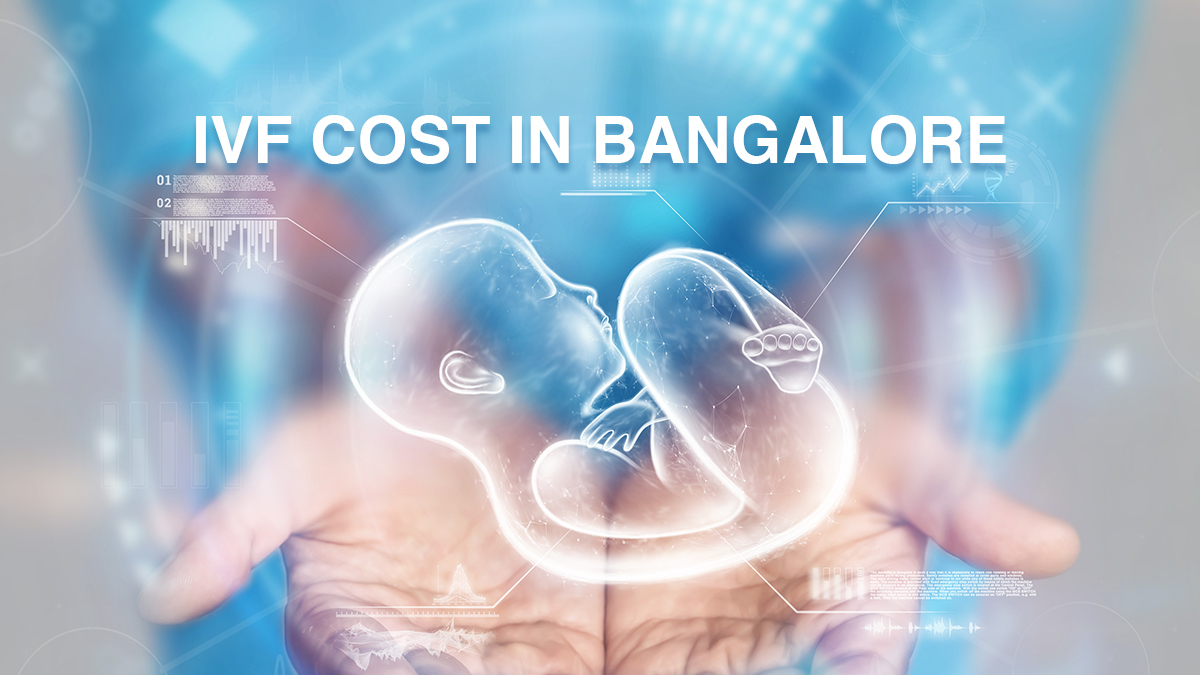
Understanding 5 Reasons Why IVF Fails the First Time

Millions of couples worldwide suffer from fertility challenges. Thanks to medical advancements, there are now numerous ways to help overcome infertility. One of the popular ways is through in-vitro fertilisation (IVF), which comes under assisted reproductive technology (ART).
To stimulate the ovaries and allow for the maturation of numerous eggs, IVF usually starts with hormone therapy. The resulting embryos are then raised before being chosen for transfer once these eggs are recovered and fertilised with sperm. Although many IVF cycles have been successful, a favourable outcome is not assured because every cycle is different.
IVF can be a difficult experience for some people, particularly if they are dealing with the emotional fallout from an unsuccessful cycle. It can be especially challenging for those going through this to deal with the reality of IVF failing for the first time.
Reasons for First Unsuccessful IVF
Why IVF fails? Let’s explore a couple of reasons for IVF failure:
Reason 1: Poor Embryo Quality
Embryo quality is a crucial component of IVF success since the success of IVF depends on whether an embryo can successfully implant in the uterus and develop into a healthy pregnancy. Even though many embryos could seem healthy when viewed under a microscope, the complicated biochemical and genetic mechanisms that control their growth are much more nuanced. Subtle genetic problems can hinder successful implantation even in embryos that appear promising morphologically, such as those with symmetrical cell divisions and a smooth developmental course.
Embryos that appear to develop and divide properly can yet have chromosomal abnormalities such as aneuploidy. These anomalies, which involve an erroneous number of chromosomes, can lead to a miscarriage or the embryo failing to implant. They are frequently the consequence of mistakes made during the maturation or fertilisation of the egg. The intricacy of the reproductive process is highlighted by these complicated genetic and cellular interactions, which show that although embryo quality is crucial, it is not always enough to ensure IVF success.
Reason 2: Uterine Receptivity Issues
Due to the intricate relationship between the uterine lining and the embryo, uterine receptivity is essential for a successful IVF implantation. Embryo attachment may be impeded by a thin endometrial lining, which is frequently brought either by hormone imbalances or inadequate blood flow. An unfavorable environment that hinders implantation might be created by inflammation brought on by infections, immunological reactions, or diseases like endometriosis. Since they do not adequately prepare the endometrium for embryo attachment, hormonal imbalances, particularly low progesterone, might significantly affect uterine receptivity. All things considered, a balanced and healthy uterine environment is necessary for successful implantation, and any disturbances can drastically lower the likelihood of becoming pregnant.
Reason 3: Embryo Implantation Failure
Pregnancy depends on successful implantation, which requires a healthy uterine lining for the embryo to firmly adhere and grow. Nevertheless, a number of things can interfere with this process. A thin endometrial lining may not be thick enough to facilitate implantation, frequently as a result of inadequate estrogen or blood supply. The embryo may also be physically prevented from embedding into the uterus by structural anomalies such as fibroids or the uterine septum. Furthermore, an overreactive immune response may identify the embryo as alien and release cells that prevent adhesion. When combined, these obstacles may lower implantation success and impact IVF pregnancy results overall.
Reason 4: Sperm Quality Issues
Since issues with sperm can impair fertilisation and harm embryo health, sperm quality is a critical component of IVF success. Low sperm counts are a common cause of male infertility, as they lower the likelihood of successful fertilisation. The chance that sperm will reach and fertilise the egg is further reduced by poor motility or the incapacity of sperm to swim efficiently. Genetic integrity of the ensuing embryos and fertilisation can also be affected by abnormal morphology, where sperm are malformed. Together, these variables impact the viability and development of the embryo, which can occasionally result in IVF failure even when other aspects of the process are perfect.
Reason 5: Age-Related Factors
Given that a woman’s fertility naturally decreases with age, advanced maternal age has a significant role in IVF results. A woman’s ovarian reserve, or the number and quality of her eggs, declines with age, which may result in less viable eggs during an IVF round. Chromosome abnormalities are more common in older eggs, which might affect the quality of the embryo and lower the likelihood of successful implantation. Pregnancy success may also be further impacted by the uterine environment becoming less conducive to embryo attachment as women age. Age is a crucial issue in fertility treatment since these factors combined result in lower IVF success rates for women who are older mothers.
Related Read: Understanding the Impact of Age on Fertility in Women
How to Prepare for a Second IVF Cycle
Being emotionally and physically ready for a second IVF cycle is essential. To begin, discuss the first cycle with your fertility doctor and note any potential modifications, such as alterations to medication, hormone levels, or the timing of the embryo transfer. Maintain a healthy diet, engage in moderate exercise, and use stress-reduction techniques like mindfulness or counselling to maximise your health. To improve reproductive health, think about making lifestyle adjustments like cutting back on drinking and stopping smoking. To get better results, many couples also investigate other tests, such as immune system assessment or genetic screening. The second cycle might go more smoothly and with greater optimism if you remain upbeat and knowledgeable.
Conclusion
The success of the intricate and multifaceted IVF procedure depends on a wide range of variables. Couples can work closely with fertility specialists to address any potential concerns if they are aware of the common reasons why IVF fails. Book an appointment at an Oasis Fertility Clinic near you to understand your odds of achieving a successful IVF. You can also converse on the live chat or call 1800-3001-1000 to get more information.


fill up the form to get a
Free Consultation
Avail 0% interest on EMI
All Procedures | No Upper Limit
Frequently Asked Questions
Is the first period after failed IVF painful?
Can IVF be successful on the first attempt?
Can I conceive naturally after a failed IVF?
How many months after failed IVF can I try again?
How we reviewed this article:
- Current Version
- March 10, 2025 by Oasis Fertility
- December 4, 2024 by Oasis Fertility





